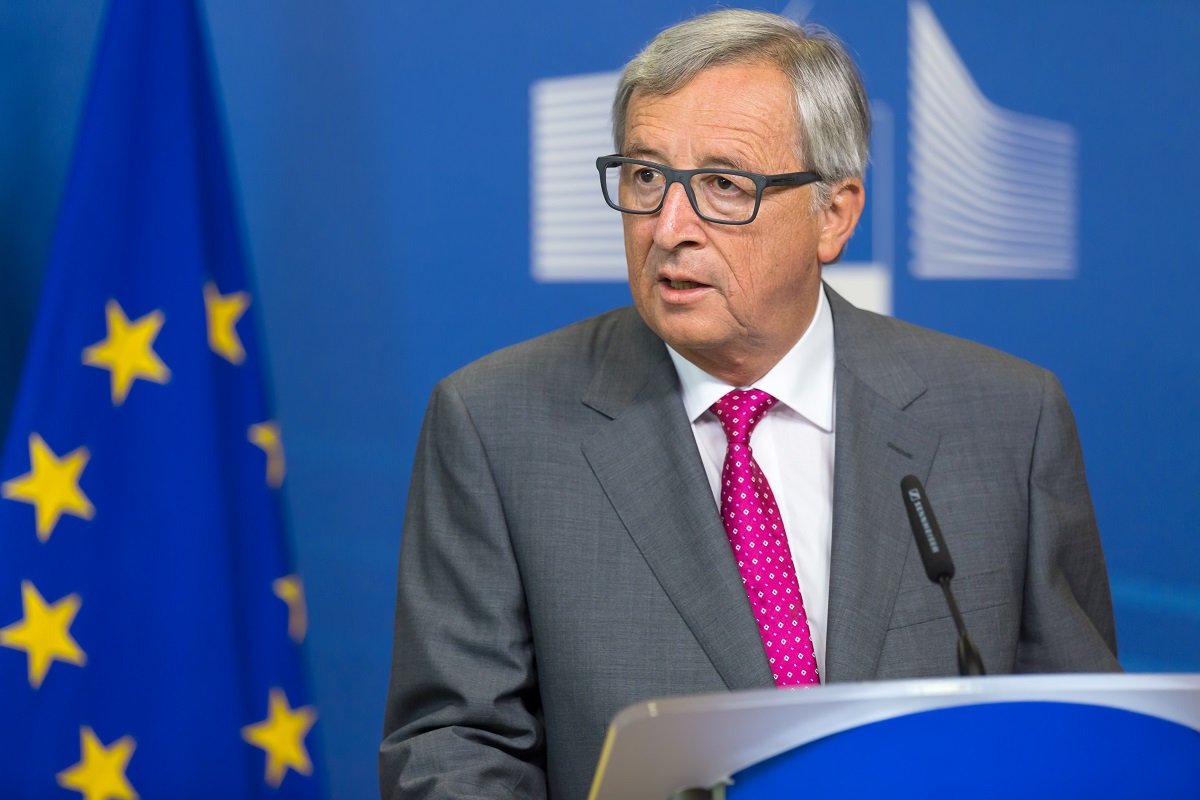Turkey must release two Greek soldiers detained in March on Turkish territory, EU Commission President Jean Claude Juncker said on Thursday during a visit to Athens.
Turkey’s Foreign Ministry on Thursday immediately rejected the statement by Juncker on the detention of two Greek soldiers in Turkey. “With these remarks… EU authorities lose their credibility and reliability day by day,” Foreign Ministry spokesman Hami Aksoy said in a statement.
Aksoy’s remarks came shortly after Juncker told Greek parliament during a visit to Athens that Turkey must release the Greek soldiers, which Turkey “received with astonishment”.
“We reject this statement, which is far from being serious and lacks legal basis,” Aksoy said and added that “Greek soldiers who violate Turkish law do not have any privileges before the independent judiciary. We condemn this two-faced mentality [of the EU], which does not hesitate to make remarks about the state of law when it wants to, and when it comes to its interests, making statements that interfere with the ongoing judicial process.”
A court in northwestern Turkey on Wednesday ordered a continuation of the detention of two Greek soldiers who “inadvertently” strayed across the countries’ border last month. The Edirne 2nd Criminal Court of Peace ruled against a petition by the soldiers’ lawyers to release them from remand.
Later on April 25, the soldiers’ lawyers appealed to the Edirne 1st Criminal Court of Peace. After hearing their arguments, the court rejected their appeal and decided to continue the detention of Lt. Aggelos Mitredotis and noncommissioned officer Dimitros Kouklatzis.
The court based its decision on digital materials found on the soldiers, their lack of permanent residence in Turkey and “concrete evidence” suggesting they would flee.
The Greek soldiers were remanded in custody on March 2 for entering a prohibited military zone in Edirne, which borders Greece.
Meanwhile, Greek Prime Minister Alexis Tsipras said on Thursday that Greece was remaining calm in the face of “dangerous provocations” from Turkey. Tsipras, who was hosting EU Commission President Juncker, said Greece could play a central part in elevating the role of the 28-member bloc into a force for peace and security.
“We are proving that by being decisive and also calm in dealing with dangerous provocations in the Aegean by Turkey towards our sovereign rights,” Tsipras said.
On Friday, Süleyman Özkaynakçı, one of eight Turkish soldiers who escaped to Greece by military helicopter in the wake of a controversial coup attempt on July 15, 2016, has been released by Greek authorities. The decision, taken by the Greek council of state, was signed on Thursday and put into practice on Friday. Helicopter co-pilot Özkaynakçı will be placed in a safehouse guarded by Greek police.
A previous court decision had ruled not to give the men travel documents and placed them under the obligation of registering with police every day. It also said that the eight soldiers should be protected and kept under surveillance by the police. Therefore, Özkaynakçı will be able to live at a secret address under police supervision, but not leave Greece.
The two NATO partners have long been at odds over issues ranging from airspace over the Aegean Sea to mineral rights in the same region, and ethnically split Cyprus.
Rhetoric between the two has recently sharpened after the arrest of two Greek soldiers by Turkey and Greece’s refusal to hand over eight Turkish commandos who fled to the country in the wake of an abortive coup against Turkish President Tayyip Erdoğan in July 2016.















